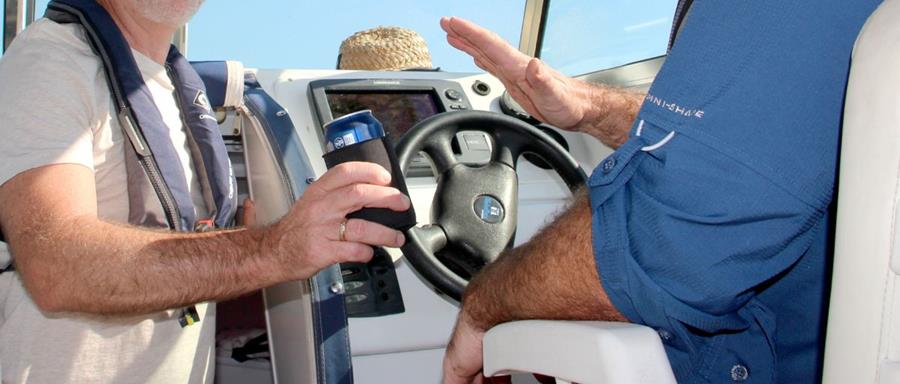Alcohol and aquatic activities don't mix!

In 24.3% of all drowning deaths in Western Australia during the 2021-22 financial year, alcohol consumption was a contributing factor. People have drowned while intoxicated and involved in almost any type of aquatic activity including swimming, surfing, boating, rock fishing, sailing, walking beside the water and playing in the water.
Why is alcohol a factor in so many drowning deaths?
Drinking alcohol impairs your senses, encouraging risk-taking behaviour which makes you more likely to get into trouble. If you drink and get into the water, tired muscles and confusion from being under the influence of alcohol makes it harder to get out of trouble. Once you are in trouble, even if a friend does come to your aid, alcohol seriously reduces your chances of surviving a non-fatal drowning as resuscitation methods are less likely to work.
What happens to the body after consuming alcohol and engaging in aquatic activity?
There are various physical changes which occur when alcohol has been consumed before an individual participates in aquatic activity. These include:
- Disturbance of the Inner Ear - Fluid in the ear is responsible for balance. Alcohol and a sudden change in temperature can lead to disorientation. Diving into the water is a perfect opportunity for this: all of a sudden, up becomes down.
- Hypothermia - Alcohol increases blood flow to the arms and legs, even when the body would normally try to stop this to save heat loss. Fall into the water under the influence of alcohol, and hypothermia kicks in much earlier.
- Spasm of the Vocal Chords - Water in the windpipe triggers a reflex closure of the windpipe. Alcohol increases the chance that a spasm of the vocal chords will occur, snapping the airway closed. The combination of water and alcohol can lock the airway closed.
How does alcohol consumption affect behaviour?
There are several potentially deadly affects of alcohol on a person's behaviour. These include:
- Lack of Coordination - Alcohol numbs the senses, particularly sight, sound, and touch. When these senses fail, the stumbles and stutters kick in.
- Greater Risk-taking Behaviour - The influence of alcohol removes inhibitions, leaving you more likely to take greater risks, even life threatening risks.
- Impaired Reaction Time - As a depressant, alcohol reduces the rate the brain processes information. In other words, ordinary reactions simply take longer. On the water, a quick response is vital.
- Impaired Judgement - Alcohol distorts your perception of risk, and your perception of your own abilities. With less accurate information pouring into the brain, you’re not as well equipped to make the right decisions.